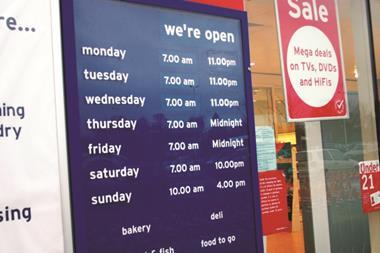The Association of Convenience Stores (ACS) has called on the Chancellor to shelve plans to change Sunday trading rules and take action on business rates ahead of his Autumn statement on 25 November.
In its submission to the Treasury, ACS has called for the following measures:
On employment:
- Extend the remit of the Low Pay Commission to ensure that government cannot interfere in the setting of wage rates.
On business rates:
- Remove more of the smallest businesses from the rating list altogether.
- Reward investment by providing business rate exemptions for new developments.
On Sunday trading:
- Drop proposals to devolve Sunday trading powers to local authorities or Metro Mayors.
On duty rates:
- Freeze alcohol and tobacco duty rates at their current level.
- Increase enforcement activity on alcohol duty fraud at a local level.
Since the Chancellor’s announcements of the introduction of a National Living Wage of £7.20 in April 2016 and plans to devolve Sunday trading powers to local authorities, investment levels in the convenience sector have fallen by over 35% and optimism has reached its lowest level for two years, according to the ACS.
It also estimates that the removal of Sunday trading regulations would result in a net loss of over 3,270 jobs.
ACS chief executive James Lowman said: “The announcements made in this year’s Budget will have a significant negative impact on local shops and other small businesses, with many delaying investment plans whilst looking to cut back on the number of staff hours in their business.
“We urge the Chancellor to take action to reduce the burdens that he has placed on convenience retailers by dropping the unpopular and unnecessary plans to remove Sunday trading regulations and to follow through on his commitment to conduct meaningful reform of business rates.
“In addition to the cost burdens being placed on retailers, they also face a constant battle against the illegal trade which costs the Treasury billions of pounds every year.
“We are calling on the government to increase the level of enforcement against duty fraud at a local level to give legitimate retailers the opportunity to trade responsibly without fear of being undercut by criminals in their area selling potentially dangerous goods.”
ACS’ full submission is available here






















No comments yet